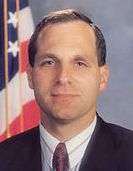THE WALL STREET JOURNAL – Real Time Brussels Blog

The Iranian opposition group Mujahedin-e Khalq, or MEK, has forged a core of support at the heart of Europe by flying in U.S. political heavyweights for lavish conferences. In January, it was former U.S. ambassador to the UN John Bolton (and his body double), former New Mexico governor Bill Richardson and former U.S. National Security Advisor director James Jones.
This week, Louis Freeh, FBI boss under Bill Clinton, was in town. Mr. Freeh, now a senior partner at his Washington consulting firm Freeh Sporkin & Sullivan LLP, has positioned himself as an MEK ally and fierce opponent of the regime in Tehran. “We’ve been appeasing these guys since 1979,” he said over coffee, describing his support for a tougher stand on Iran.
The thorny issue of Iran regained prominence last week with the Obama administration’s announcement that it had foiled an Iranian plot to assassinate the Saudi ambassador to the U.S in Washington. Iran has said that the Iranian defendent in the case, Gholam Shakuri, actually belongs to MEK and recently visited Camp Ashraf, its compound in eastern Iraq. The allegation is nonsense, says Shahin Gobadi, an MEK spokesman. In a statement, he said the mullahs routinely “blame their crimes on their opposition for double gains.”
Instead, the MEK says the recent plot legitimizes its campaign to be taken off the U.S.’s official terrorist list, where it landed in the 1990s following negotiations between the Clinton administration and Iran. It had become, it says, a bargaining chip. The designation was due to MEK’s links to Saddam Hussein’s regime. After much lobbying, it is now off the EU’s list but has yet to be successful in the U.S.
Its other signature issue is the fate of Camp Ashraf, a refugee village of 3,400 MEK sympathizers which the Iraqi government, under pressure from Iran and its Shiite allies in Iraq, has vowed to close by the end of the year.
MEK fears an imminent military crackdown by the Iraqi government, such as one in April that ended with the death of 34 people. “We have received word from inside the Iranian government that another crackdown is planned,” said Maryam Rajavi, president-elect of the National Council of Resistance of Iran, which bills itself as the parliament in exile of Iranian dissidents.
Mrs. Rajavi shows pictures of listening devices near the camp she says have been placed there by Iranian agents. Tehran has heavily lobbied Iraq to put more pressure on Camp Ashraf.
Supported by Mr. Freeh, she is calling for the 3,400 residents of Camp Ashraf to receive refugee status. “Right now, many countries, the U.S. included, won’t take these guys in,” he said.
Mr. Freeh, who receives occasional speaker fees and travel expenses from Iranian exile groups, called MEK’s political future unclear. “It’s hard to judge their popularity in Iran,” he said. “I don’t have a position on MEK, except that they’re not a terrorist group.”
Once the MEK is removed from the U.S. terrorist list, said Mr. Freeh, Camp Ashraf residents will be able to obtain refugee status and emigrate outside Iraq.
After that, “the camp should be shut down,” he said.
http://blogs.wsj.com/brussels/2011/10/19/iranian-opposition-denies-role-in-plot/